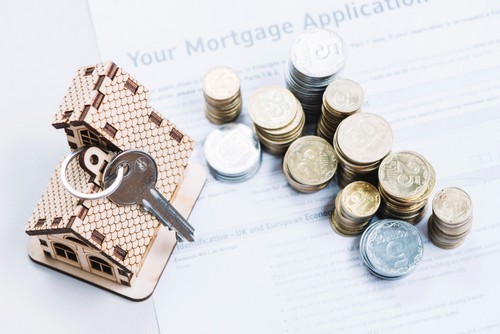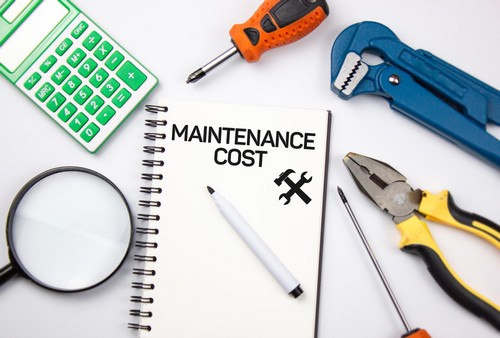Top 10 Tips for First-Time Homebuyers

Important Takeaways:
Are you ready to start your home-buying journey? Contact a trusted real estate agent today and take the first step toward finding your dream home!
Your First Step Toward Homeownership
Buying your first home is an exciting yet nerve-wracking journey. With so many factors to consider—down payments, mortgage approvals, market trends—it’s easy to feel overwhelmed. But don’t worry! We’ve got your back with this ultimate guide, designed to help first-time homebuyers like you navigate the process smoothly.
By the end of this guide, you’ll have a clear roadmap to follow, ensuring you make informed decisions while avoiding common pitfalls. Let’s dive in!
1. Start Saving for a Down Payment ASAP
The earlier you start saving, the better. A 20% down payment is ideal to avoid Private Mortgage Insurance (PMI), but even if that’s not feasible, saving as much as possible will put you in a strong financial position.
Pro Tips:
- Set up a separate savings account just for your down payment.
- Automate monthly transfers into this account to stay consistent.
- Cut unnecessary expenses—yes, that daily fancy coffee might need to go!

2. Get Familiar with the Real Estate Market
Before you start house hunting, take time to research the housing market in your desired location. Understand pricing trends, availability, and what features are common in your price range.
How to Research Effectively:
- Browse real estate websites for recent listings.
- Attend open houses to get a feel for different neighborhoods.
- Consult local real estate agents for insider insights.

3. Get Pre-Approved for a Mortgage
A mortgage pre-approval is essential. It not only gives you a clear budget but also shows sellers you’re a serious buyer. Having this in hand makes your offers stronger in a competitive market.
Steps to Get Pre-Approved:
- Gather necessary documents (income proof, tax returns, credit report, etc.).
- Research different lenders and their mortgage products.
- Compare interest rates and terms to get the best deal.

4. Determine What You Can Afford
Your mortgage isn’t the only cost—consider property taxes, home insurance, and maintenance. Use online mortgage calculators to estimate monthly payments and ensure you’re buying within your means.
Key Considerations:
- Aim for a home that doesn’t exceed 30% of your monthly income.
- Set aside funds for unexpected expenses (repairs, renovations, etc.).
- Plan for long-term affordability, not just the purchase price.

5. Choose the Right Location
The neighborhood you choose will impact your daily life and future resale value. Look for an area that aligns with your lifestyle, work commute, and future plans.
What to Consider:
- School districts (even if you don’t have kids, they affect resale value).
- Proximity to work, shopping centers, hospitals, and entertainment.
- Safety and future development plans in the area.


6. Budget for Home Maintenance Costs
Owning a home comes with ongoing maintenance expenses. Plan to save 1-3% of your home’s value annually for repairs and upkeep.
Typical Maintenance Costs:
- HVAC servicing
- Roof inspections
- Plumbing and electrical repairs
- Lawn care and landscaping

7. Make a List of Must-Haves vs. Nice-to-Haves
Prioritize your needs over wants. Features like an extra bedroom, home office, or a big backyard might be must-haves, while a swimming pool or walk-in closet could be optional.
How to Decide:
- Rank features based on necessity.
- Consider long-term needs (growing family, remote work, etc.).
- Be flexible, but don’t compromise on essentials.

8. Always Get a Home Inspection
A home inspection is non-negotiable. It reveals potential issues that could cost thousands in repairs later.
Inspection Checklist:
- Roof and foundation condition
- Plumbing and electrical systems
- Signs of water damage or pest infestations
- Heating and cooling systems

9. Make a Strong Offer (and Be Ready to Negotiate)
Once you’ve found your dream home, it’s time to make an offer. Research recent sales in the area to ensure you’re offering a fair price.
Negotiation Strategies:
- Submit a competitive but reasonable offer.
- Include contingencies for inspections and financing.
- Be flexible with the closing date to accommodate the seller.

10. Close with Confidence
You’re almost there! Closing is the final step where you’ll sign paperwork, finalize your mortgage, and officially become a homeowner.
What to Expect at Closing:
- Review all documents carefully before signing.
- Bring necessary identification and proof of insurance.
- Be prepared to pay closing costs (usually 2-5% of the home price).

Final Thoughts: Welcome to Homeownership!
Congratulations! Owning a home is a major milestone, and with careful planning, you’ve set yourself up for long-term success.

